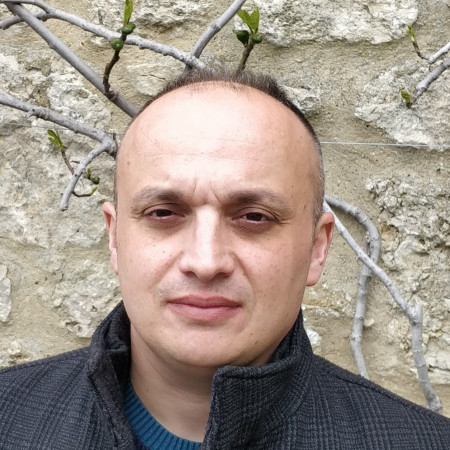
Dr Ilias Kounatidis
Lecturer In Biomedical Health Sciences
Biography
- 2025 - Today: Chair of the Open University STEM Biosafety Committee.
- 2025 - Today: Expert Grant Reviewer, Research Foundation Flanders - FWO
- 2022 - Today: Lecturer in Biomedical and Health Sciences, School of Life, Health and Chemical Sciences, The Open University
- 2021 - Today: External Scientific Expert, European Food Safety Authority (EFSA), Parma, Italy
- 2018 - 2022: Beamline Scientist, Cryo-Imaging group, Diamond Light Source (UK's National Synchrotron)
- 2017 - 2020: Master in Education (strand: Leadership and Management), School of Education, Oxford Brookes University, Oxford, UK
- 2016 - 2017: Postgraduate Certificate in Teaching in Higher Education (PCTHE) Oxford Centre for Staff and Learning Development (OCSLD), Oxford Brookes University, Oxford UK
- 2011 - 2017: Postdoctoral Researcher, Biochemistry Department, University of Oxford, UK
- 2006 - 2010: PhD in Microbiology & Genetics, School of Biology, Aristotle Universisty of Thessaloniki, Greece
- 2000 - 2005: BSc in Biology, School of Biology, Aristotle Universisty of Thessaloniki, Greece
Ilias is a Fellow of the Royal Microscopical Society (FRMS) and a Fellow of the Higher Education Academy (FHEA). Currently, he serves as a coordinator of the Neuroscience research cluster at the School of Life & Health Sciences (LHCS) at the Open University, alongside Dr. Laura Lopez.
Research interests
- Validation of antimicrobial drugs and production of evidence to infrom public health policy and regulatory decisions.
- Screening and characterization of compounds with antimicrobial properties.
- Host–pathogen interactions, with a special focus on fungal pathogenesis (Candida spp.).
- Development and application of correlative microscopy approaches in biomedical research, with an emphasis on synchrotron-based imaging techniques.
- Investigation of the inflammageing phenomenon using invertebrate model systems.
You can find more details about our research in the video below, where my PhD student, Chengetai Mpahanga, presents her work in the lab.
Prospective research students
- Apply for the following PhD fellowship soon available in our lab: https://research.open.ac.uk/news/fellowship-advance-research-drug-resistant-hospital-infections
- Ilias can supervise postgraduate research projects linked to his interests as part of the new Interdisciplinary Life and Environmental Science Landscape Award (ILESLA) doctoral training programme.
Our lab's work is alligned with the following ILESLA research themes:
1. Animal and Human Health with pothential research topics: Antimicrobial Resistance, Immunology, Microbiology, Microbiome science, Healthy Ageing & Pharmaceutical and vaccine production
2. Rules of life with pothential research topics: Cellular mechanisms, Genetics
3. Transformative Technologies with potential research topics: Advanced experimental techniques, Imaging, Synchrotron science, Cryo-EM
To apply for the new ILESLA PhD doctoral training programme at The Open University, click here.
I am also open to discussing potential projects with self-funded prospective PhD students, whether based at home or overseas.
Publications
Book Chapter
Journal Article
New generation modified azole antifungals against multidrug-resistant candida auris (2025)
The utility of Drosophila melanogaster as a fungal infection model (2024)
Systematic analysis of YFP traps reveals common mRNA/protein discordance in neural tissues (2023)
Correlative multi-scale cryo-imaging unveils SARS-CoV-2 assembly and egress (2021)
Cryo-Structured Illumination Microscopic Data Collection from Cryogenically Preserved Cells (2021)
A 3D Cartographic Description of the Cell by Cryo Soft X-ray Tomography (2021)
Exploring interactions between pathogens and the Drosophila gut (2016)
Genetic and Cytogenetic Analysis of the Walnut-Husk Fly (Diptera: Tephritidae) (2010)
Acetobacter tropicalis Is a Major Symbiont of the Olive Fruit Fly (Bactrocera oleae) (2009)
Genetic and cytogenetic analysis of the fruit fly Rhagoletis cerasi (Diptera: Tephritidae) (2008)